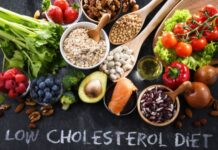Affiliate Disclaimer
Some links in this article are affiliate links. We may earn a small commission if you make a purchase through these links, at no extra cost to you. We only recommend products we find useful to our readersThis article highlights the role that daily routines play in lowering the risk of cancer and sheds light on the significant influence these routines have on our general well-being. By exploring the complex relationship between lifestyle and cancer, we can make more informed decisions about our health and become more proactive about what we put into our lives.
Importance of Lifestyle in Cancer Prevention
A substantial body of research highlights how essential lifestyle decisions are in preventing cancer. Numerous studies have examined the complex relationship between everyday behaviors and cancer risk, and the results point to a significant relationship that needs our attention.
Regular exercise, a well-balanced diet high in fruits and vegetables, and abstaining from tobacco and excessive alcohol use are all vital cancer prevention strategies. According to the World Health Organization, modifiable risk factors associated with lifestyle choices account for about 30% of cancer-related fatalities. These figures highlight how our everyday decisions influence our long-term health results.
Additionally, research has clarified the preventive benefits of a health-conscious lifestyle, showing that implementing such practices lowers cancer risk and improves general well-being. Understanding and adopting these lifestyle choices become essential in strengthening our defenses against this powerful enemy as we navigate complex terrain of cancer prevention.
1. Regular Exercise and Physical Activity

The significance of regular exercise and physical activity emerges as a cornerstone in strengthening the body’s defenses against this ubiquitous hazard in the ongoing pursuit of cancer prevention. Research has repeatedly shown how exercise can significantly reduce cancer risk by affecting several physiological and metabolic systems.
Exercise is very essential for maintaining a healthy body weight and is closely related to preventing cancer. Beyond helping people lose weight, physical activity supports immune system regulation, hormonal balance, and the decrease of chronic inflammation—all of which significantly impact the development and course of cancer.
A well-rounded approach to exercise is essential for a cancer prevention program to be successful. Including cardiovascular exercises like cycling, running, or walking improves cardiovascular health and helps with weight control. In addition, resistance training—which includes exercises with weights or body weight—increases muscle strength and strengthens the body’s defenses against cancer.
According to health organization guidelines, aim for at least 130 minutes of moderate-intensity aerobic exercises or 70 minutes of vigorous-intensity exercise every week. Furthermore, experts advise performing strength-training activities that target main muscle groups for two or more days. By incorporating these many exercise modalities into their daily regimen, individuals can prevent cancer and promote their general well-being. Frequent exercise becomes apparent as a proactive move toward living a more robust and healthier life and a preventive one.
2. Balanced and Nutritious Diet
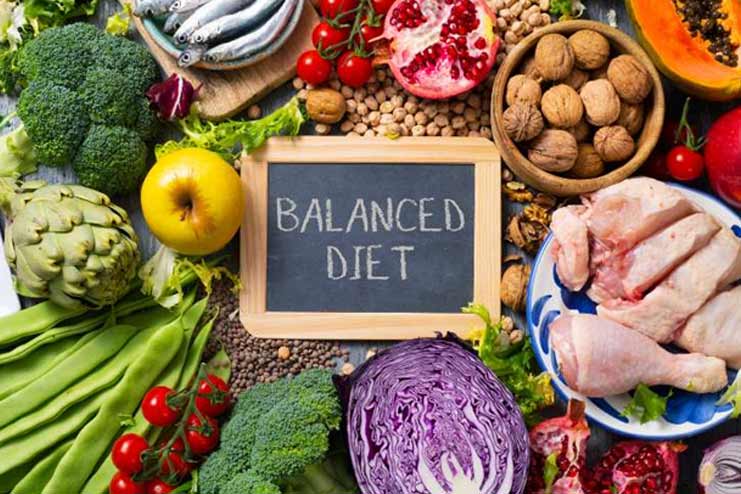
A healthy, well-balanced diet is a powerful weapon against cancer because it alters the internal environment of the body and lowers the risk of contracting this difficult-to-cure illness. Research has consistently shown that certain foods, nutrients, and overall dietary patterns have an impact on cancer prevention, demonstrating the well-established association between dietary choices and cancer risk.
A diet high in fruits and vegetables, a great source of vitamins, minerals, and antioxidants, has been linked to lower risk of developing several malignancies. These plant superfoods protect the body’s natural defensive systems, fight oxidative stress, and improve cellular health. Similarly, high-fiber whole grains and legumes are vital for preserving gut health and controlling body weight, critical for preventing cancer.
Flaxseeds and fatty fish, such as salmon, which is a very rich sources of omega-3 fatty acids, have anti-inflammatory qualities that may help reduce the risk of cancer. On the other hand, making a wise dietary decision involves cutting back on red and processed meats, as they have been connected to colorectal cancer.
Eating a diet very rich in fruits and nuts, vegetables, whole grains, and healthy fats—the Mediterranean diet—has been shown to have substantial preventive effects against several cancer types. This eating plan reduces the intake of processed foods and carbohydrates while highlighting the value of various nutrients.
Our dietary decisions have a significant impact on building a cancer defense. In addition to promoting general well-being, deliberately adopting a nutritious and balanced diet is a powerful tactic in lowering cancer risk. People who comprehend the mutually beneficial connection between their eating habits and well-being are better equipped to make decisions that benefit prevention and lifespan.
Read More about: Balanced Diet Chart For Good Health
3. Maintaining Healthy Body Weight

Relationship Between Cancer Prevention and Weight Management: There is a well-established correlation between cancer prevention and keeping a healthy body weight in preventive healthcare. Obesity and excessive body weight are major risk factors for breast, colorectal, and pancreatic cancers, among other malignancies. Particularly, visceral fat and adipose tissue can create growth factors and hormones that encourage inflammation and accelerate the spread of cancer cells.
It takes a variety of approaches to reach and maintain healthy body weight, including mindful eating, consistent exercise, and lifestyle changes. It is essential to include a balanced diet that limits the use of processed foods and sugary drinks and emphasizes fruits, vegetables, whole grains, and lean meats.
Regular exercise is essential for controlling weight and preventing cancer. Try to get in at least 150 minutes a week of moderate-to-intense aerobic exercise or 70 minutes of vigorous exercises, along with strength training at least twice a week. These initiatives favorably affect the immunological system and hormone balance, in addition to helping with weight control.
In addition to the food and exercise, getting enough sleep and managing the stress are also essential for keeping a healthy weight. Hormonal control can be upset by long-term stress and sleep deprivation, which can lead to weight gain. Putting relaxation-promoting self-care activities first and ensuring you get enough good sleep are essential parts of a comprehensive strategy for managing your weight and, by extension, preventing cancer. People can promote a holistic approach to well-being by adopting these practical measures, which can help them navigate the route to a healthier weight and a lower risk of cancer.
4. Avoidance of Harmful Substances

Avoiding dangerous substances like tobacco, too much alcohol, and other recognized carcinogens is crucial if one hopes to prevent cancer. These drugs have been shown to have negative impacts on the risk of cancer, which highlights the urgent need for preventative actions to lessen their influence.
The harmful effects of alcohol, tobacco, and carcinogens: One of the most significant global factors in cancer incidence and mortality is tobacco use. Tobacco smoke contains variety of chemicals, including carcinogens like formaldehyde and benzene, which damage cellular DNA and promote the unchecked proliferation of cancer cells. There is no doubt that smoking causes malignancies of the mouth, throat, and lungs, among other places.
Overindulgence in alcohol is another modifiable cancer risk factor. Acetaldehyde, a known carcinogen, is produced when alcohol is metabolized. Long-term alcohol consumption has been associated with a higher risk of malignancies of the breast, esophagus, colon, and liver.
Furthermore, the chance of developing cancer can be increased by the exposure to environmental carcinogens, such as certain chemicals and pollutants. Prevention necessitates minimizing exposure to these toxins at work or in one’s residence.
Methods and Resources for Cutting Back on Alcohol and Quitting Smoking: Numerous tools and techniques are available to help those who want to overcome their addiction to tobacco. Support groups, counseling programs, and nicotine replacement treatments are all excellent resources for anyone trying to give up smoking. People can easily access professional advice and community support through online resources and hotlines.
In a similar vein, cutting back on alcohol requires developing considerate drinking practices. Effective tactics include establishing boundaries, switching between alcoholic and non-alcoholic drinks, and looking for social activities that don’t center around drinking. For those who want to cut back or stop drinking, alcohol cessation-focused counseling programs and support groups can offer the essential resources.
Raising public knowledge of risks associated with tobacco use, binge drinking, and exposure to carcinogens is primarily accomplished through public health campaigns and educational programs. By providing people with information and easily accessible resources, we set the stage for a society dedicated to reducing the adverse effects of dangerous chemicals and promoting a cancer prevention culture.
5. Protection from UV Radiation
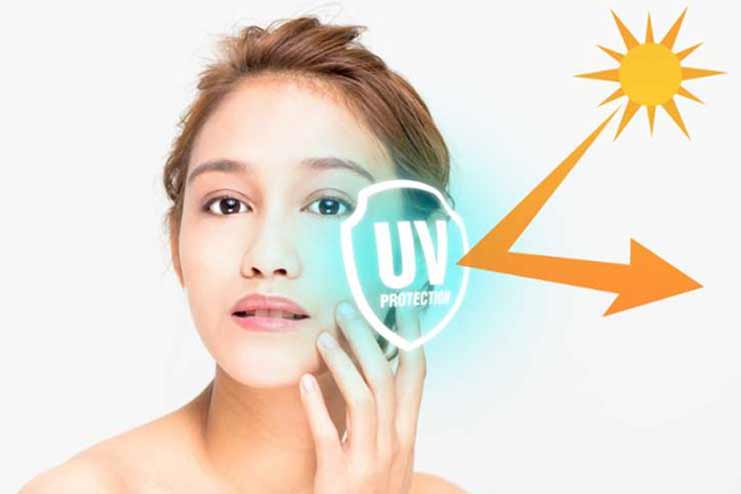
UV Protection Is Essential for Preventing Skin Cancer: Since the skin is the biggest organ in the body, it is most vulnerable to the adverse effects of ultraviolet (UV) radiation. It is commonly known that exposure to UV radiation increases risk of developing skin cancer, including melanoma.
The DNA of skin cells can be harmed by the UV radiation from the sun and artificial sources, including tanning beds. Continuous, unprotected exposure to UV radiation significantly increases the incidence of skin cancer; therefore, maintaining the health of your skin is vital through prevention.
Helpful Advice for Sun Safety and Sunscreen Application: Adopting sun safety measures is essential to shielding oneself from UV rays. Putting on sun protection gear, such as sunglasses and hats with wide brims, adds another defense against direct sunlight exposure. Finding shade during the hot parts of the day, usually between 10 a.m. and 4 p.m., helps further lessen UV rays.
The key to adequate sun protection is using sunscreen as directed. Choose a broad-spectrum sunscreen and generously apply it to all exposed skin, ensuring the SPF is 30 or greater. Every two hours, or more frequently if you’re swimming or sweating, reapply sunscreen. Remember frequently ignored regions like your neck, ears, and tops of your feet. Sunscreen should always be a part of your routine, even on cloudy days. UV rays can pass through clouds.
Also, read: Top 3 UV-Blocking Sunglasses: Essential Eye Protection for Sun Exposure
6. Stress Management and Mental Well-being

Comprehending the complex interplay between stress, mental health, and physical well-being in today’s hectic society is critical. Notably, evidence points to a strong link between long-term stress and a higher risk of cancer. Prolonged stress can lead to inflammatory reactions and immune system deterioration, which can facilitate the growth and spread of cancer cells. Consequently, implementing efficient stress management strategies is essential for maintaining mental health as well as lowering the chance of developing major diseases like cancer.
Stress, Mental Health, and Cancer Risk: A Correlation: There is a complex and nuanced relationship between mental health, cancer risk, and stress. Prolonged stress causes hormonal alterations that could upset the body’s balance and encourage the development of cancer.
Stress can also weaken the immune system, making it more difficult for the body to fight aberrant cell growth. Stress and mental health work together to shape our physiological reactions, which in turn affects our vulnerability to cancer.
Practical Methods for Reducing Stress and Promoting Mental Health: Using research-based stress-relief methods is crucial to reducing stress and protecting mental health. Deep breathing techniques, yoga, and mindfulness meditation have all been shown to be beneficial in lowering stress and fostering mental toughness.
Maintaining mental health requires both obtaining professional counseling and building a solid support network through social ties. Additionally, maintaining a balanced lifestyle, getting enough sleep, and engaging in regular physical activity all significantly impact stress management and mental health.
Recommended Article: Mindfulness and Meditation: Stress Reduction for Cancer Prevention
7. Regular Health Screenings
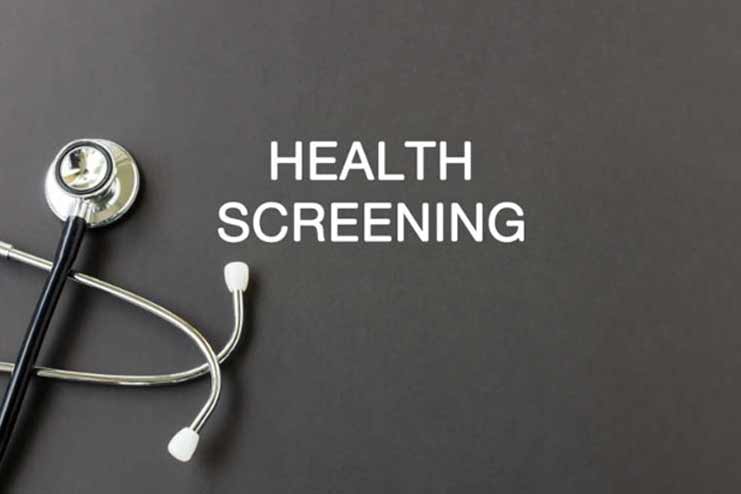
Proactive healthcare strongly emphasizes routine health screenings since they provide a critical window for the early detection and treatment of various diseases. Of all the available screenings, one that stands out as essential to comprehensive healthcare strategies is the one that focuses on early cancer diagnosis.
Importance of Regular Health Screenings for Early Cancer Detection: Regular health screenings are essential for spotting possible health problems before symptoms appear, allowing for early intervention and treatment. Early detection dramatically increases the likelihood of a successful outcome when it comes to cancer. Early detection of aberrant cell growth enables timely medical intervention, frequently stopping the disease from progressing to more advanced stages. Frequent screenings reduce the overall impact of the disease on an individual’s well-being and minimize the need for severe therapies, saving lives and improving quality of life.
The Significance of Suggested Screenings in Cancer Prevention: It is advised to get screened for various cancers depending on age, gender, family history, and lifestyle. Among the frequently recommended screenings include mammograms for breast cancer, Pap smears for cervical cancer, colonoscopies for colorectal cancer, and prostate-specific antigen (PSA) testing for prostate cancer. These tests help identify cancer in its earliest, most curable stages. People who actively engage in these preventative activities give themselves the ability to take control of their health and promote a proactive attitude to cancer prevention.
Also, read: 7 Essential Health Screenings Every Woman Should Prioritize
8. Environmental and Workplace Safety
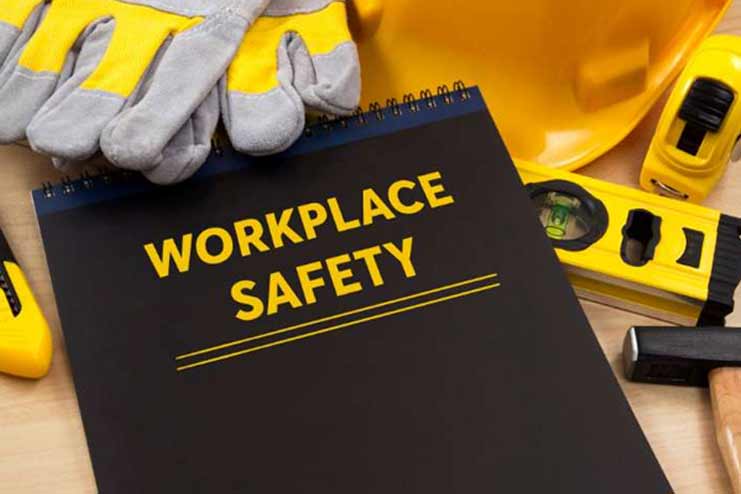
It is critical to protect occupational and environmental safety to protect people’s health in various circumstances. Finding and eliminating possible carcinogens—substances that may accelerate cancer development—in the workplace and the surrounding environment is a crucial aspect of this duty.
Potential Carcinogens in the Workplace and Environment: Several materials in our offices and surrounds have been linked to cancer. These could include solvents, asbestos, industrial chemicals, and some natural substances. Extended exposure to these compounds increases the risk of developing cancer, which emphasizes the significance of taking preventative safety measures.
Minimizing Exposure and Following Safety Procedures: Strict attention to safety procedures is necessary to reduce exposure to possible carcinogens. It covers using personal protective equipment (PPE), installing suitable ventilation systems, and conducting routine air quality checks. Prioritizing staff safety training and putting controls in place to replace or reduce the use of hazardous materials are two things that employers should undertake. People can help ensure their safety by being aware, raising issues as soon as they arise, and pushing for a safe and secure workplace.
9. Quality Sleep and Rest

A good night’s sleep is very essential for maintaining overall health because it is critical to many physiological functions. Significantly, a correlation has been shown between the kind of sleep and the chance of developing cancer, indicating that getting enough sleep is essential for preventative care.
The Benefits of Adequate Sleep for Preventing Cancer: Getting enough sleep has many health benefits, including improving immunity and managing hormones. Unbalances in these vital processes may result from disturbances to the sleep-wake cycle, which may have a role in the emergence of cancer. Studies indicate that regular, good-quality sleep may work as a preventive measure, lowering the risk of several types of cancer. Read More: Healthy Sleep Patterns: Impact on Cancer Prevention and Recovery
Practical Advice for Increasing the Quantity and Quality of Sleep: People can boost their sleep duration and quality by implementing good sleep hygiene habits. Effective sleep tactics include:
- Setting up a regular sleep routine.
- Making a quiet, relaxed, dark atmosphere.
- Minimizing screen time before bed.
Furthermore, relaxation methods like meditation and abstaining from stimulants like caffeine close to bedtime will encourage sound sleep. Making these practices a priority improves general health and may even reduce the chance of cancer.
Also, read: Sleep Hygiene: Creating Your Ideal Sleep Environment
Conclusion
By utilizing stress reduction, routine medical exams, environmental safety, and restful sleep, we open the door to lowering cancer risk and promoting general well-being. Allow these routines to become ingrained in your everyday life, giving you the strength and grace to face life’s obstacles head-on. Your dedication to these practices improves your health and acts as a role model for a community committed to cancer prevention and community health.
References
- https://www.pennmedicine.org/cancer/navigating-cancer-care/risks-and-prevention/lifestyle-risk-factors
- https://www.cedars-sinai.edu/research/areas/circl/cancer-lifestyle.html
- https://www.cancer.org/cancer/latest-news/how-exercise-can-lower-cancer-risk.html
- https://www.cancer.net/navigating-cancer-care/prevention-and-healthy-living/physical-activity-and-cancer-risk
- https://www.cancerresearchuk.org/about-cancer/causes-of-cancer/diet-and-cancer/does-having-a-healthy-diet-reduce-my-risk-of-cancer
- https://www.betterhealth.vic.gov.au/health/conditionsandtreatments/cancer-and-food
- https://www.cancer.net/navigating-cancer-care/prevention-and-healthy-living/body-weight-and-cancer-risk
- https://www.cancervic.org.au/healthyweight/obesity-and-cancer-what-is-the-link
- https://www.cancercenter.com/community/blog/2023/07/smoking-and-drinking-raise-cancer-risk
- https://www.ncbi.nlm.nih.gov/pmc/articles/PMC6527045
- https://www.who.int/news-room/questions-and-answers/item/radiation-ultraviolet-(uv)-radiation-and-skin-cancer
- https://www.mdanderson.org/publications/focused-on-health/how-stress-affects-cancer-risk.h21-1589046.html
- https://www.cancer.gov/about-cancer/coping/feelings/stress-fact-sheet
- https://www.cancer.gov/about-cancer/screening/patient-screening-overview-pdq
- https://cancer.ca/en/cancer-information/find-cancer-early/screening-for-cancer/benefits-and-limitations-of-regular-cancer-screening
- https://www.cancer.gov/about-cancer/causes-prevention/risk/substances/carcinogens
- https://www.health.state.mn.us/communities/environment/hazardous/topics/cancerenvt.html
- https://www.hopkinsmedicine.org/health/wellness-and-prevention/lack-of-sleep-and-cancer-is-there-a-connection
- https://progressreport.cancer.gov/prevention/sleep




